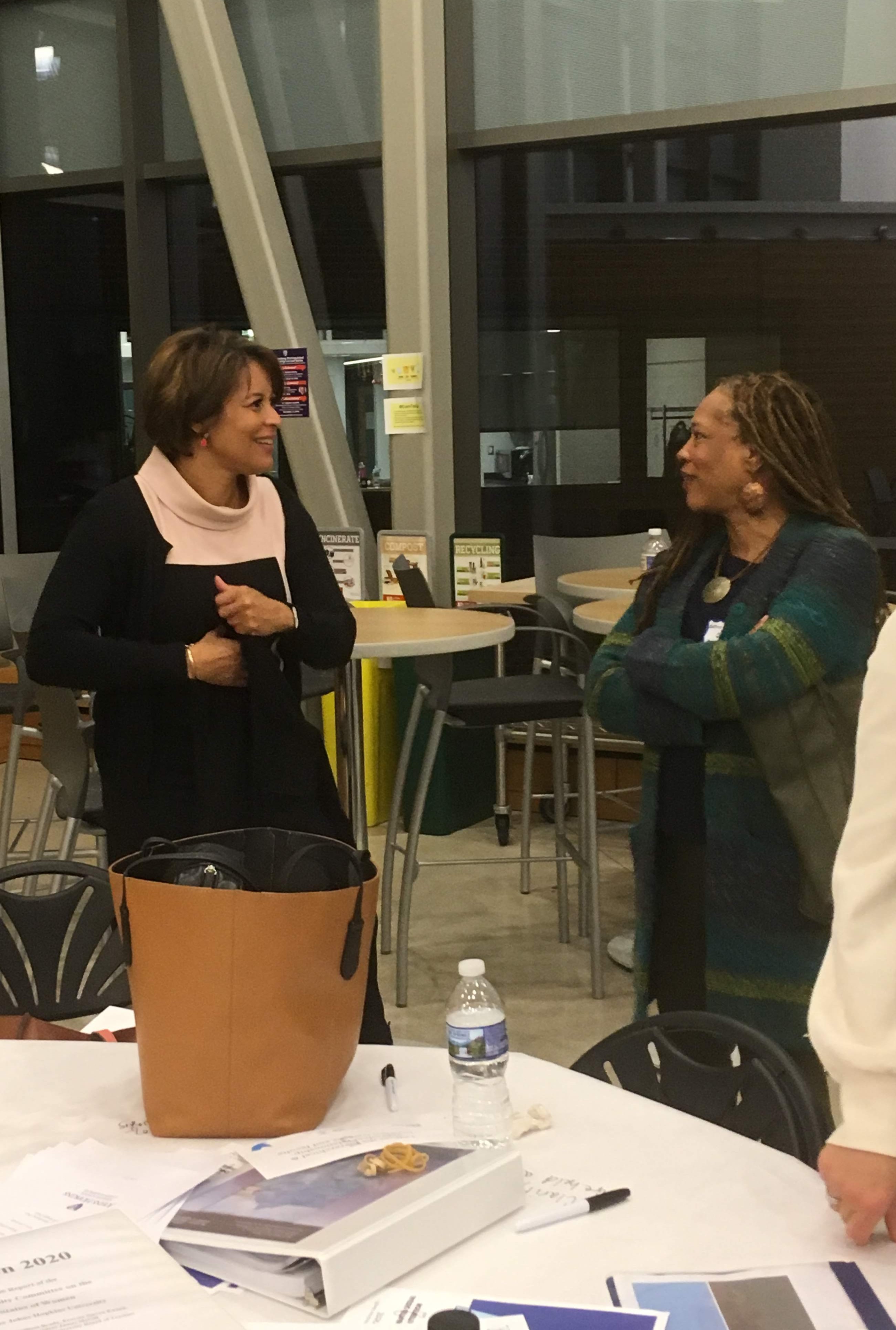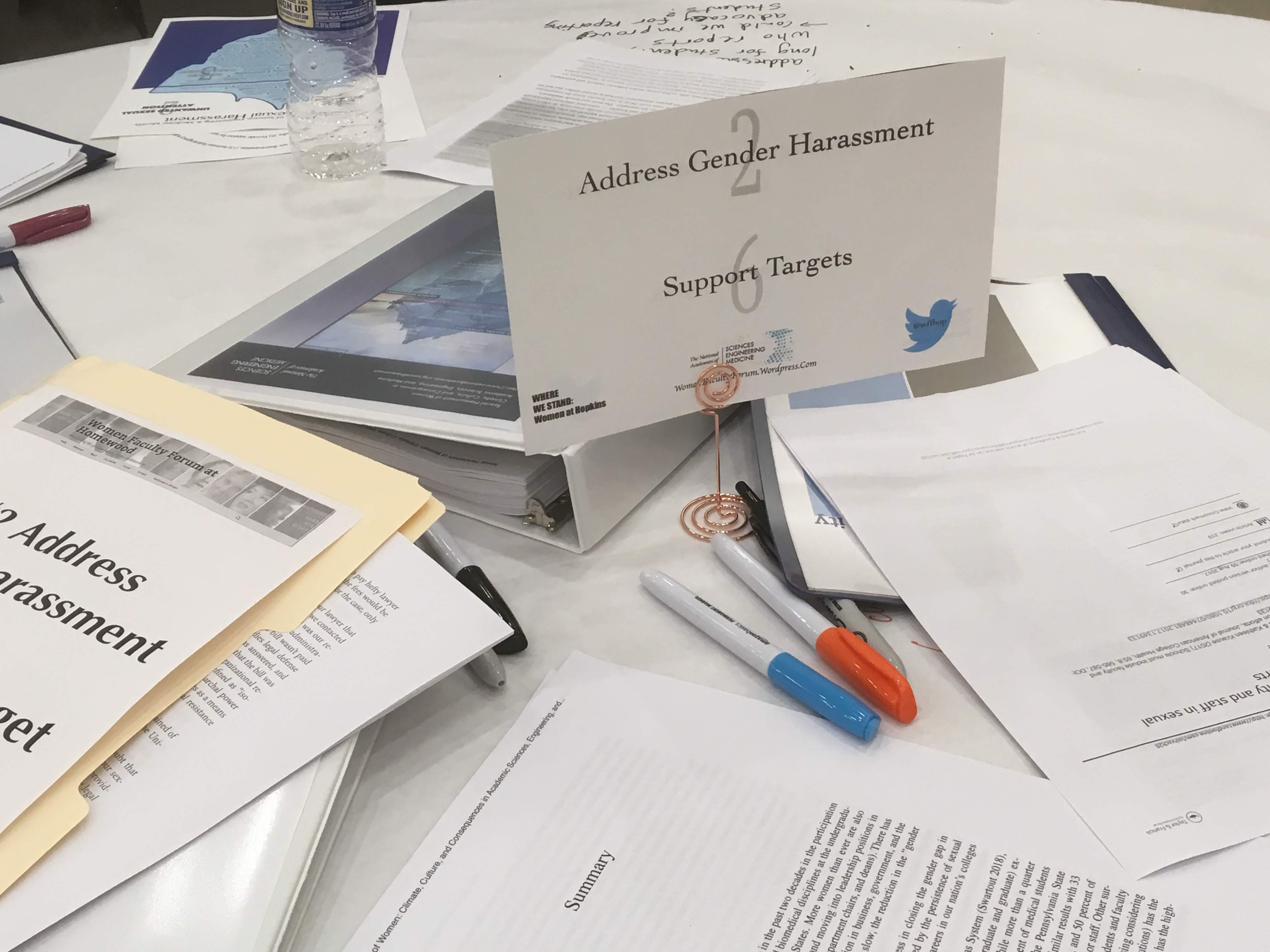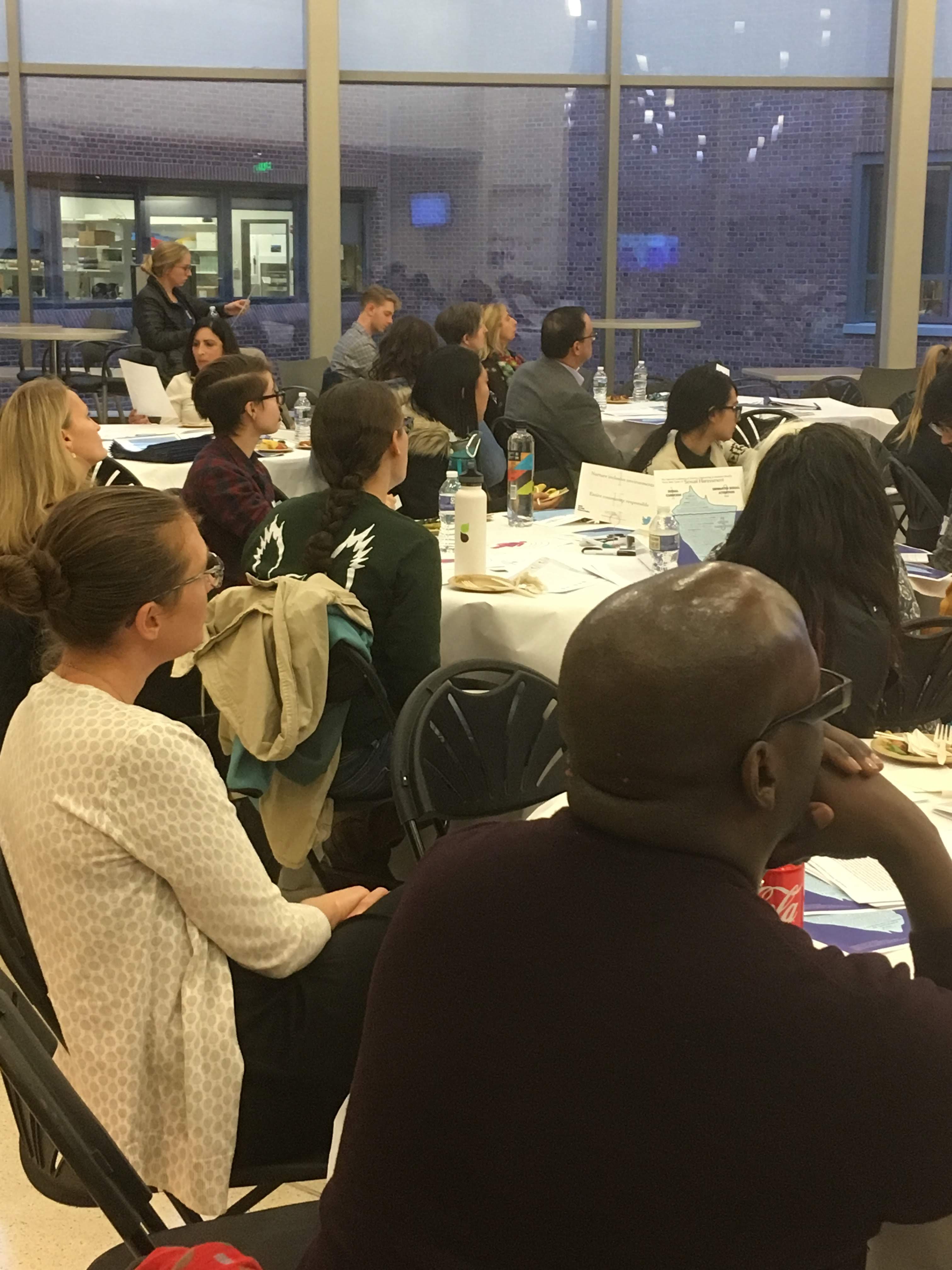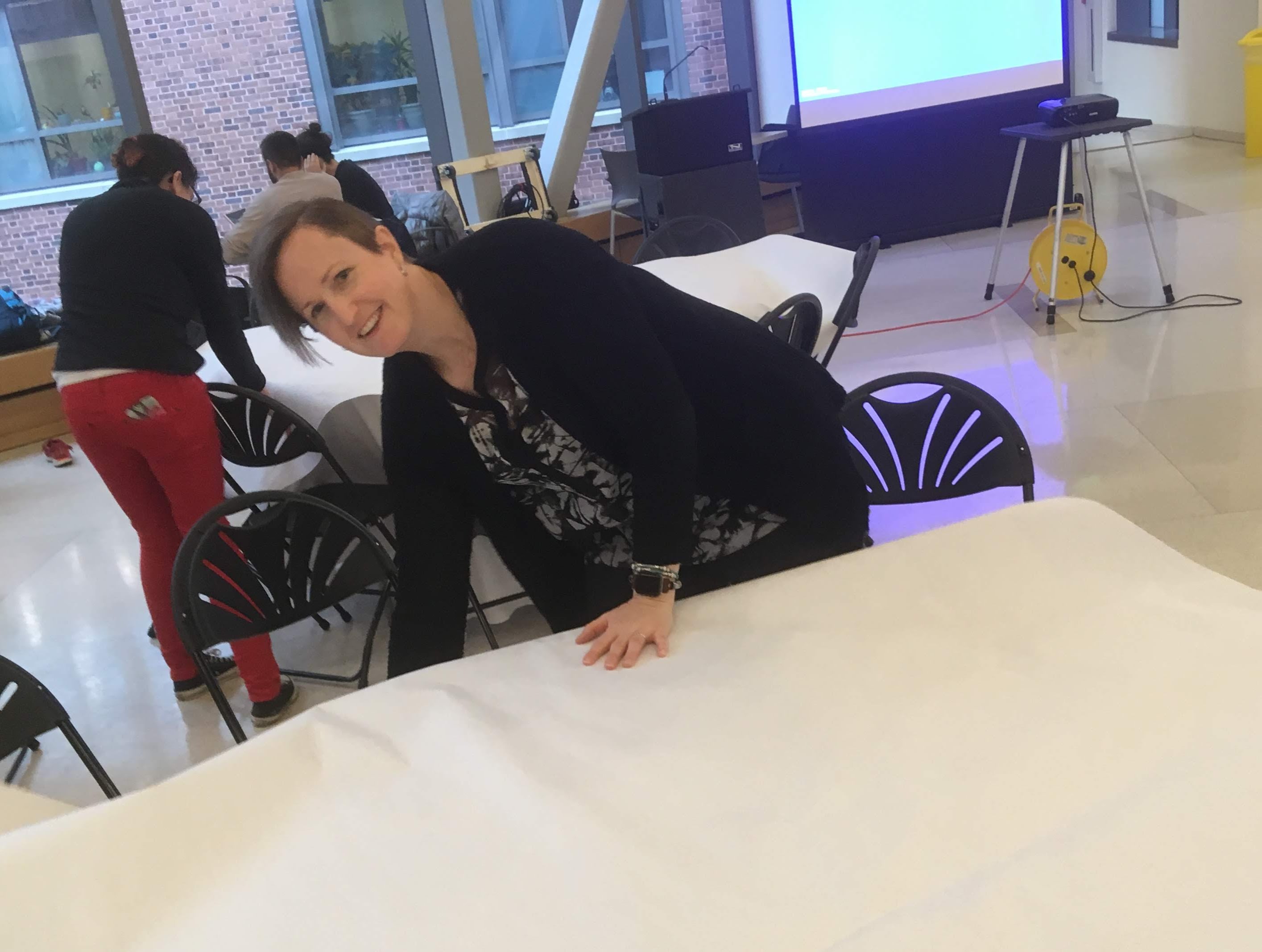At Where We Stand, we always have themed tables with relevant resources, markers, and white butcher paper for notes. This year, with the focus on the NAS report on sexual and gender harassment, each table was focused around one or two of NAS’s 15 recommendations. We combined the NAS findings with JHU data. For example:
With over 50 people participating, the event began with a welcome from John Toscano, Vice Dean for Natural Sciences in the Kreiger School. Next Professor Karen Fleming gave an overview of the NAS report (WhereWeStand_KarenSlidesForDistribution)
Dean Toscano’s remarks: Good evening. As we get ready to discuss the National Academies Report on Sexual Harassment, I’m honored to be here with colleagues ready to engage in what is probably some of our most important work at this juncture: that is, increasing gender equity in all aspects of our academic and work environments here at Johns Hopkins University.
We have made notable progress on some of the goals outlined in the Vision 2020 Report. The new parental leave policy recently put into place will help to enhance work-life balance. Additionally, the provost’s office recently hired a dual career specialist who will focus on providing divisions with resources and services to maximize opportunities to recruit and retain dual career couples.
We have recently implemented two faculty initiatives at Krieger and Whiting – the Launch Program and the Master Mentor Program. Launch committees are designed to provide new junior faculty in STEM fields with advice and mentorship to facilitate early career success. Our Master Mentor program equips senior faculty to be better and more effective mentors for junior faculty, postdocs, and graduate students. While these programs are new, we are excited about their start and we believe that they have the potential to impact important aspects of our climate and culture.
Although we are proud of this progress, we also recognize opportunities for improvement that will better position us for institutional excellence. In order to create new knowledge that offers potential solutions to global and societal problems, it’s critical that everyone has a place at the academic table.
In particular, we must explore ways to expand pathways to leadership for women faculty and staff. One of our goals is to improve our training, hiring, mentoring, and promotion practices. Currently, some of these systems and policies can make it challenging for scholars and academic leaders to fully develop their academic and professional pathways.
We also know from research that the more diverse a team is, the more innovative it is. That means that if we’re not actively solving issues of underrepresentation at all levels, and breaking down barriers, we are losing out on talent and the opportunity to innovate faster and better.
Lastly and perhaps most importantly, we must engage men who are part of the Hopkins community in our efforts towards gender equity. Men, particularly those in leadership positions, play an important role in breaking down barriers and promoting equity. We can’t afford to place the burden solely on women or other underrepresented groups to change the status quo.
In this regard, we want to encourage men to increase awareness of actions and potential biases that impact the career success of women. For example, we encourage men who are chairs of academic departments to initiate discussions on ways to foster collegiality, collaboration, and an inclusive climate in their own departments – to fight what the National Academies Report refers to as “gender harassment” – that is, verbal or nonverbal behavior that conveys hostility, objectification, exclusion, or second-class status toward members of one gender.
As we begin to roll up our sleeves today and dig into this work, I’d like to envision the highest ideal – an environment and launching pad so inclusive that any student, postdoc, staff, or faculty member can reach for their heights without stumbling over barriers of any kind. So, let’s begin to dive into what is needed to get us from here to there.
Thank you.
In the next week or so, we’ll share the resources and the ideas of each of the tables. Until soon–
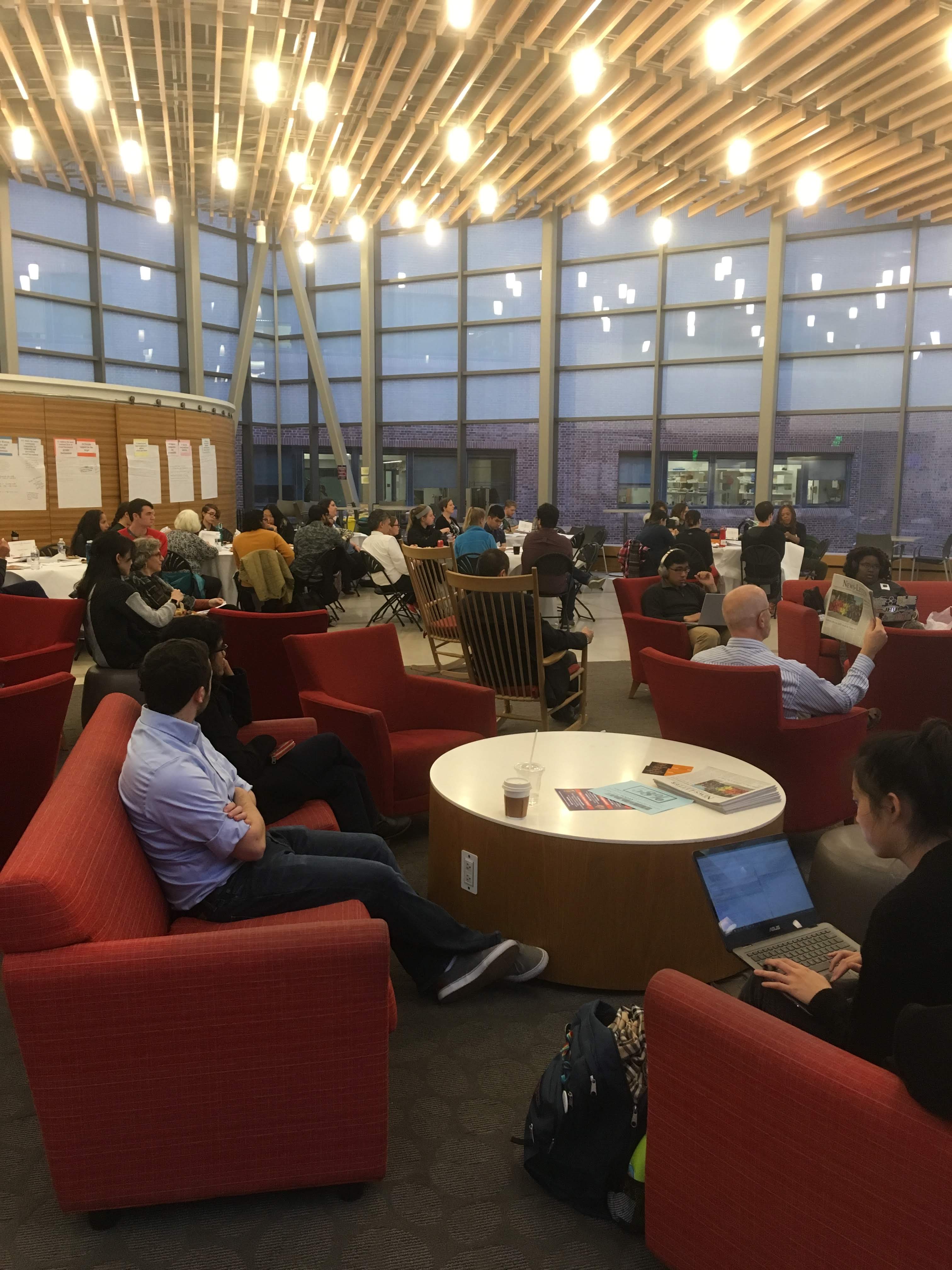
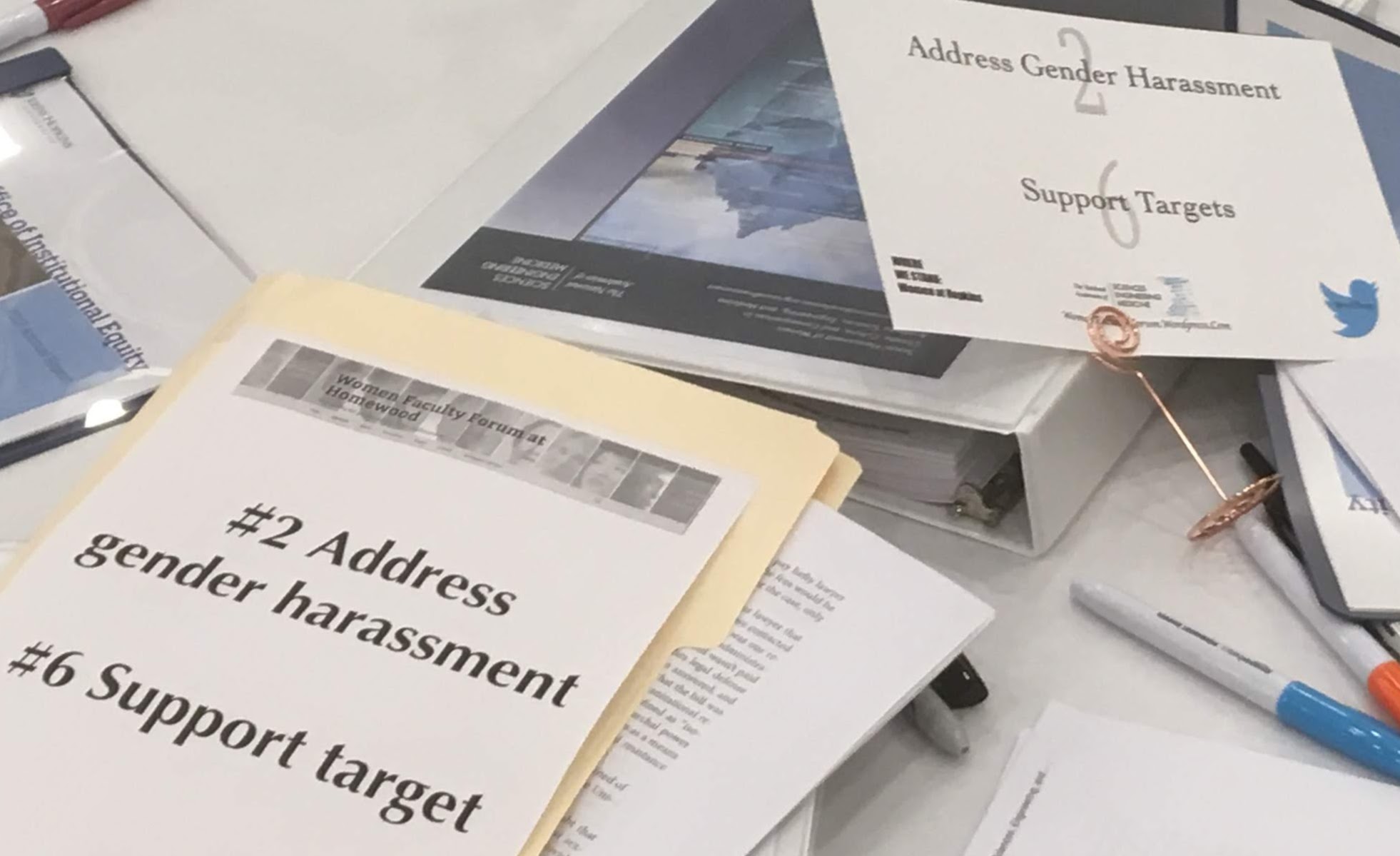
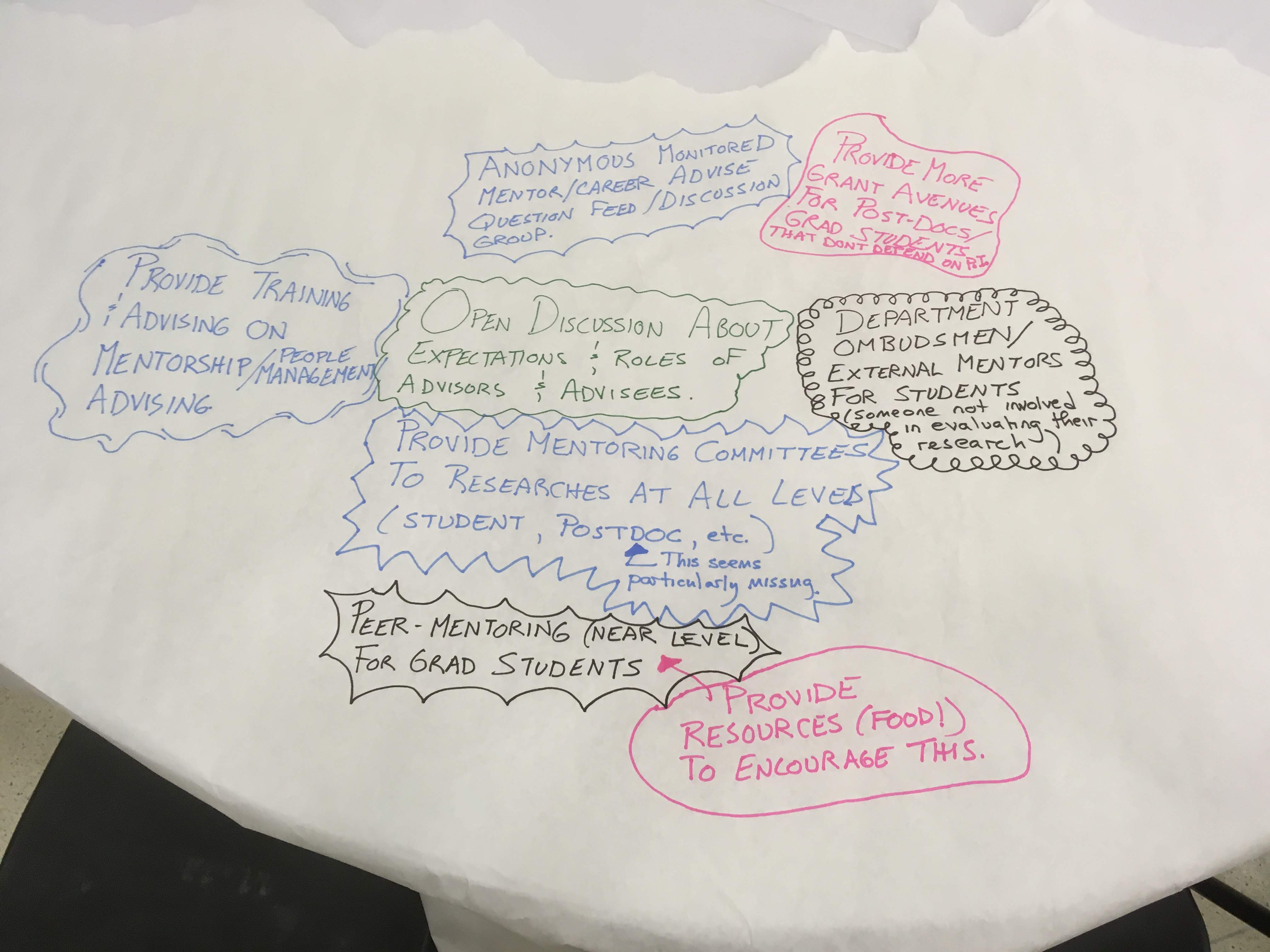
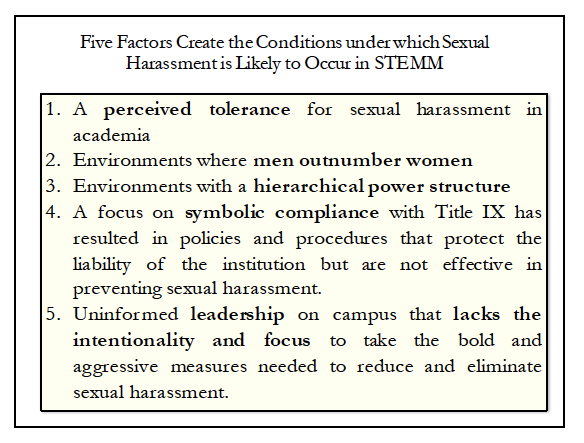
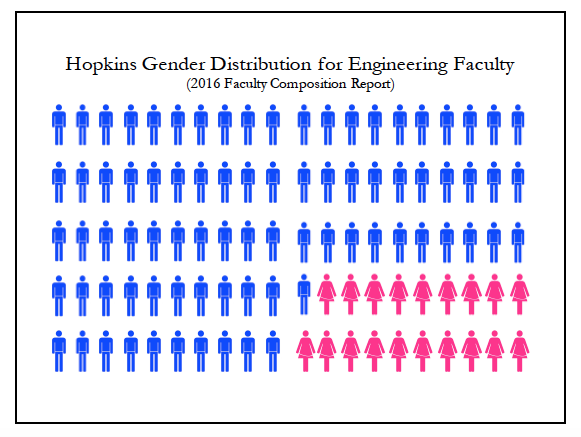
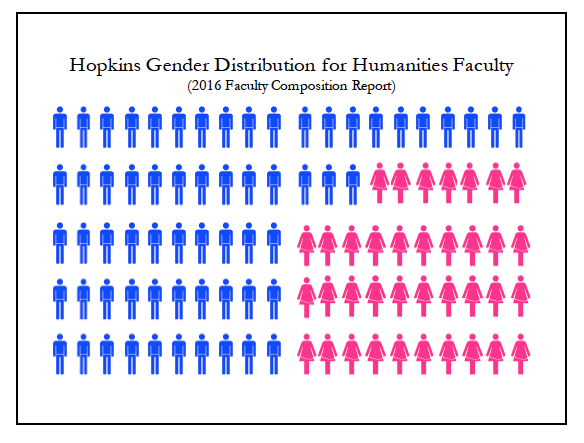
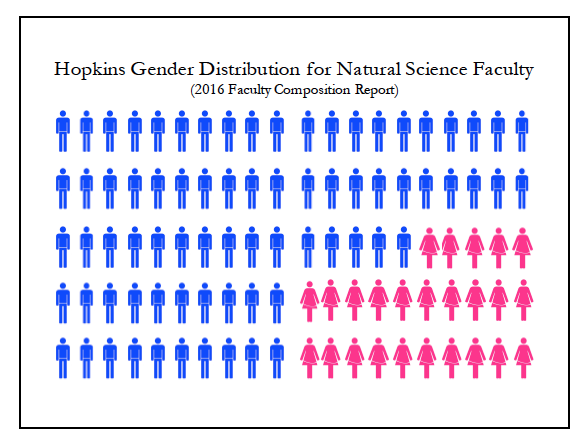
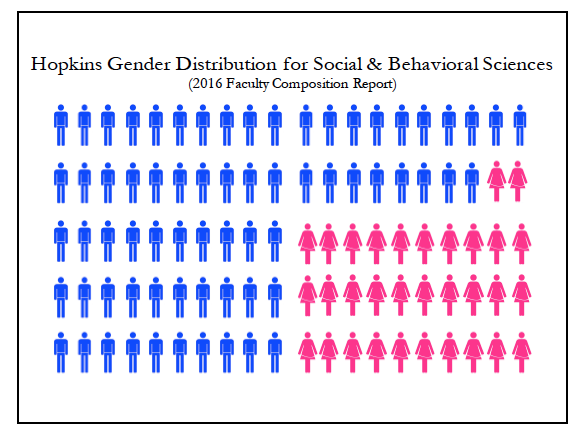
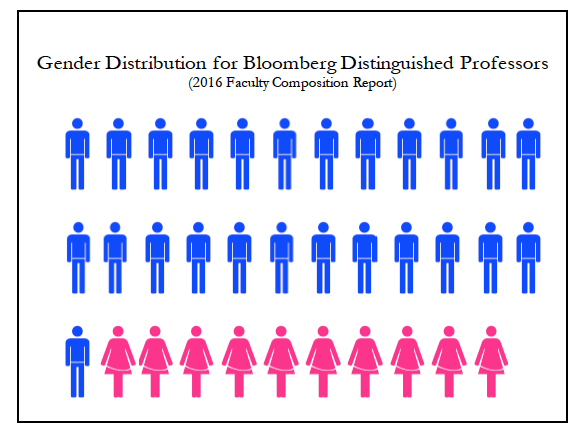

 We are delighted to invite Homewood faculty of all ranks and all genders to join a coffee hour discussion about graduate student advising! (So far we’ve posted about this topic
We are delighted to invite Homewood faculty of all ranks and all genders to join a coffee hour discussion about graduate student advising! (So far we’ve posted about this topic 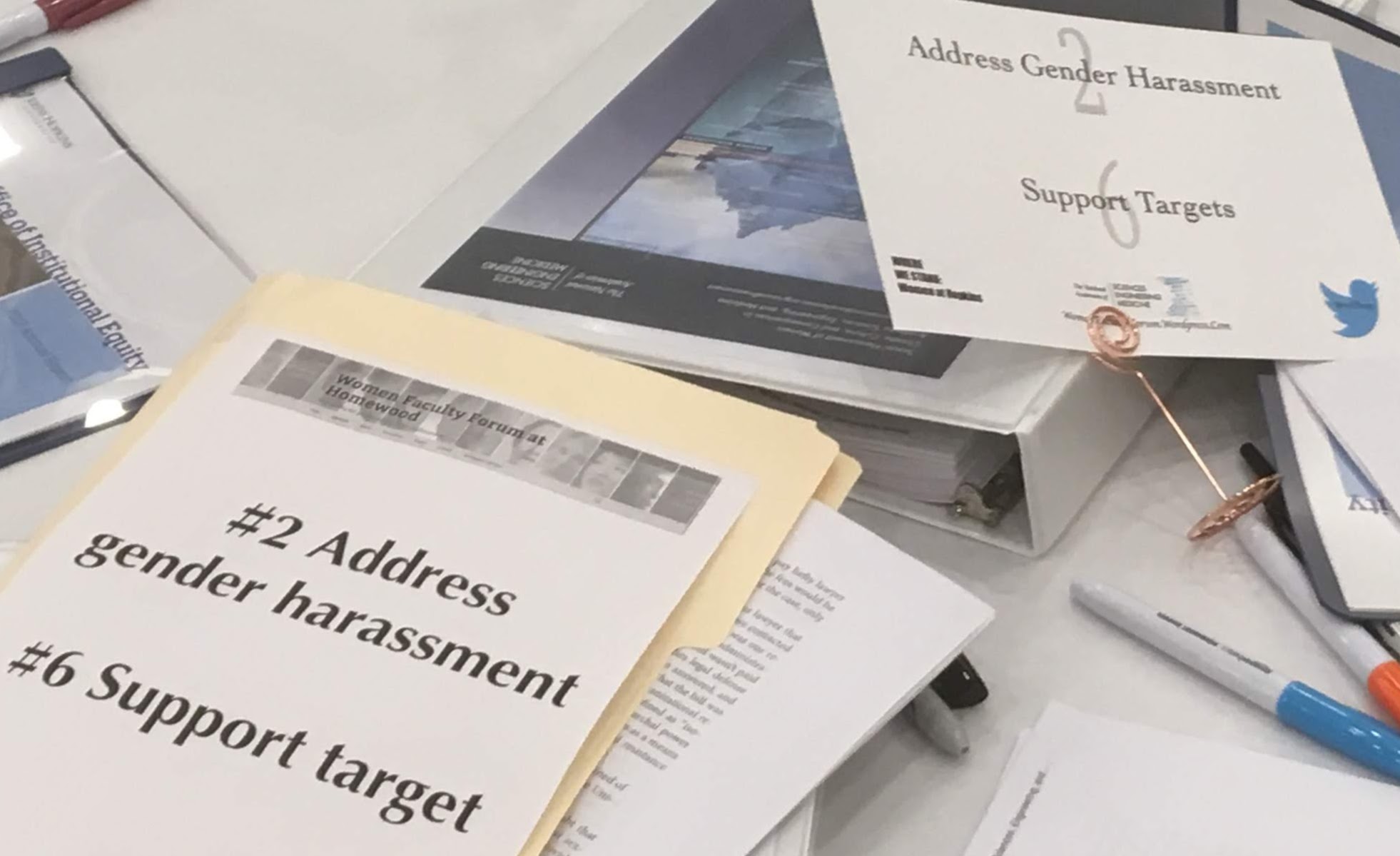 As you may know, over 100 Hopkins professors, researchers, grad students, and postdocs signed a
As you may know, over 100 Hopkins professors, researchers, grad students, and postdocs signed a 